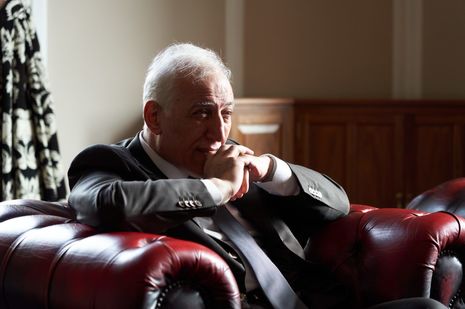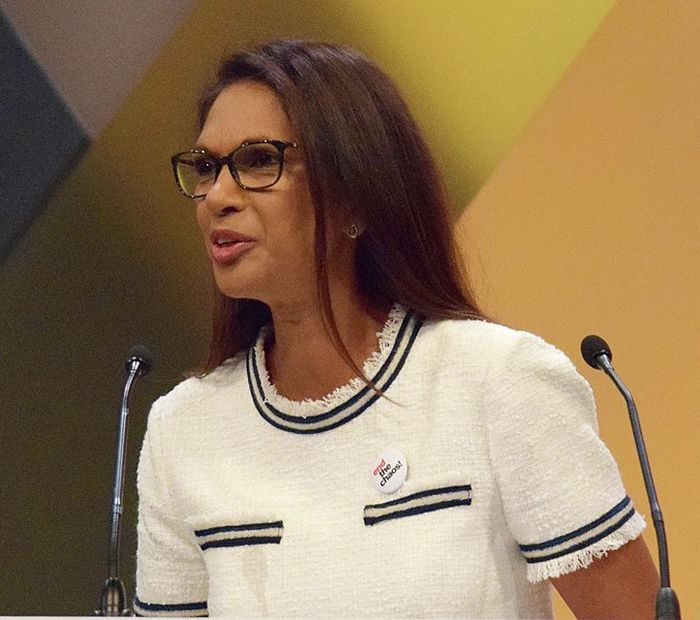President of Armenia: ‘You need to live in peace with your neighbours’
HE Vahagn Khachaturyan on his presidency, Armenia’s conflict with Azerbaijan, and his will for peace.

For someone whose country is currently in intensive peace talks with Azerbaijan, the President of Armenia is surprisingly relaxed as he sits across from me ahead of his Cambridge Union talk.
After assuming the presidency last year, Vahagn Khachaturyan stated he wanted to be a unifying figure. When asked whether he feels he’s achieved this in his first year as President, he takes a moment to think: “it’s very difficult to do”, he tells me; tensions with Armenia’s neighbours create difficulties both internally and externally, despite his desire to be unifying being “very great”. The ongoing dispute between Armenia and Azerbaijan is over the Nagorno-Karabakh region, a conflict which lasted “for more than 30 years” and caused his predecessor, Armen Sarkissian, to resign because of his lack of influence in times of emergency. Khachaturyan, however, does not share this feeling, emphatically declaring: “if there is a law, I shall move by the law”. He evidently has no intention of overstepping his constitutional role, understanding that when you have such power “you should know your capacities and also the limits”.
“Corruption was more governing the country than the state institutions”
I begin to wonder if his commitment to ensuring that he stays firmly within the confines of his position is rooted in a desire to tackle Armenia’s history of systemic corruption, but he preempts me: “corruption was more governing the country than the state institutions”, he acknowledges. When questioned about how to resolve this, he replies: “It’s a very simple formula”. He makes it clear that confronting the issue requires the collaboration of the whole country; while the first steps focusing on governmental corruption have been successful, the President also says that the “citizenship must be supporters of combating corruption, not parties of corruption”. For a country fragmented by civil unrest, such as the anti-government protests following the 44-day war with Azerbaijan in Autumn 2020, the nationwide collaboration needed to tackle corruption is difficult to achieve.
Armenia’s ability to develop internally is reliant on peace with neighbouring nations. How will Armenia and Azerbaijan be able to reach a peaceful agreement? “You need to live in peace with your neighbours, regardless of all factors. Even if you hate each other … you should still live in peace, same as in life.”
“We don’t want the settlement of the issues in our region to become the occasion for another conflict”
Although we are relying on a translator to communicate, his tone is that of an astute, judicious politician ready to steer his country towards a truce: to me, his desire for conciliation is clear. “You should re-evaluate the balance of losing and winning”, he says, before joking that the “big Armenia” many still yearn for existed “about 2000 years ago”. Despite saying this with a laugh, his comment is a stark reminder of the importance of maintaining realistic expectations within peace discussions, with both sides needing to be prepared to compromise.
Tensions between Armenia and Azerbaijan are a matter of international interest, with the recent peace talks held in Washington D.C., and Khachaturyan is not afraid of addressing the elephant in the room: Russia’s influence in the region. “We don’t want the settlement of the issues in our region to become the occasion for another conflict between Russia and other countries”, he says carefully, demonstrating his awareness of the current volatility of the international stage. This makes it all the more important that their dispute should be resolved swiftly, although history suggests that this prospect will not be easily enacted.
I ask the President what he hopes to achieve during the rest of his presidency, and he chuckles. It was almost certain that his reply would be: “Most importantly, peace”. He is clearly tired of years of fighting.
“When I started, my daughter … was one month old. Now my youngest granddaughter is four years old and we still have this problem. I don’t want to leave this issue to the generation of my grandchildren. I want them to live in peace and friendship with their neighbours”. This moving sentiment shows dedication to achieving peace is derived from the powerful force of love. He understands both personally as well as politically that too many generations have suffered, and he is not prepared to let this continue. As our discussion comes to a close, his final statement is characteristic of the quietly compelling, wise remarks he has offered throughout: “It’s not always that speaking loudly brings you success.”
 News / Hundreds of Cambridge academics demand vote on fate of vet course20 February 2026
News / Hundreds of Cambridge academics demand vote on fate of vet course20 February 2026 News / University Council rescinds University Centre membership20 February 2026
News / University Council rescinds University Centre membership20 February 2026 News / Judge Business School advisor resigns over Epstein and Andrew links18 February 2026
News / Judge Business School advisor resigns over Epstein and Andrew links18 February 2026 News / Petition demands University reverse decision on vegan menu20 February 2026
News / Petition demands University reverse decision on vegan menu20 February 2026 News / Caius students fail to pass Pride flag proposal20 February 2026
News / Caius students fail to pass Pride flag proposal20 February 2026










